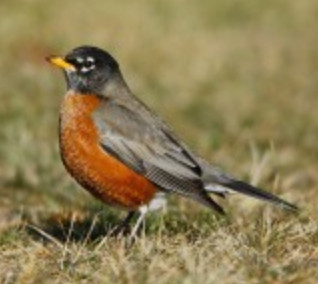From the Connecticut Audubon Society: For those of you who have taken down your bird feeders this summer — a sincere thank you for caring about Connecticut’s birds.
The good news: It’s okay to start feeding birds again.
But if you decide to do so, there are still a few precautions you should heed.

State environmental officials said today that the number of dead birds being reported in Connecticut has dropped to about a quarter of what it had been in recent weeks.
As a result, the Connecticut Audubon Society is joining the Connecticut Department of Energy and Environmental Protection in dropping its recommendation that people take in their backyard bird feeders and bird baths.
The decision is based on the drop-off in reports of dead birds as well as declines in the number of dying birds in other states where the die-off started and seemed to hit harder.
Still unidentified
The condition that has been killing birds remains unidentified. It was first seen in spring in the Maryland-Virginia-Washington D.C. area and was ultimately reported in at least seven additional states. Because of concerns that the condition might be caused by an infectious disease, environmental officials and conservation groups recommended that people take in their bird feeders and bird baths.
It was a precaution meant to reduce the number of places where birds could gather close to each other. Connecticut Audubon and the CT DEEP made their recommendations on July 6.
Others making the recommendation were the Smithsonian Migratory Bird Center, the U.S. Geological Service, and state agencies and conservation organizations in Rhode Island, Vermont, New Hampshire, Massachusetts, New Jersey, Pennsylvania, Washington DC, Maryland, Virginia, North Carolina, Tennessee, Ohio, and Kentucky.
In late July, three dead birds tested in Connecticut were found to have symptoms similar to those being seen in other states. Those symptoms were mainly swollen or cloudy eyes, and crusty discharges from the eyes.
Follow these precautions People who choose to resume feeding birds should follow these precautions, which have also been issued in other states where no-feeding recommendations were recently rescinded:
• Clean feeders and bird baths with soap and water at least once a week, then disinfect with a 10% bleach solution to prevent potential infectious disease spread between birds and other wildlife.
• After cleaning, rinse well with water and allow to air-dry.
• When handling bird feeders and baths be sure to wear disposable gloves and wash your hands when finished.
• Avoid handling birds unless necessary. Dispose of dead birds in a plastic bag, seal, and discard with household trash. If handling is necessary, wear disposable gloves or use plastic bags on your hands to avoid contact with carcasses.
• Keep pets away from sick or dead wildlife.
Dead birds can be reported to the CT DEEP database.